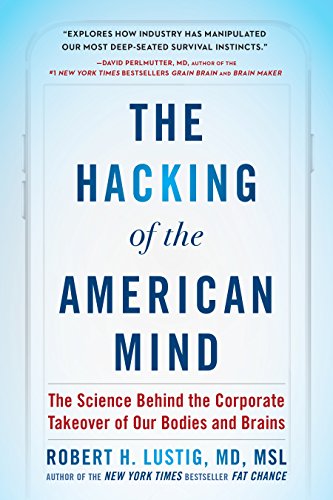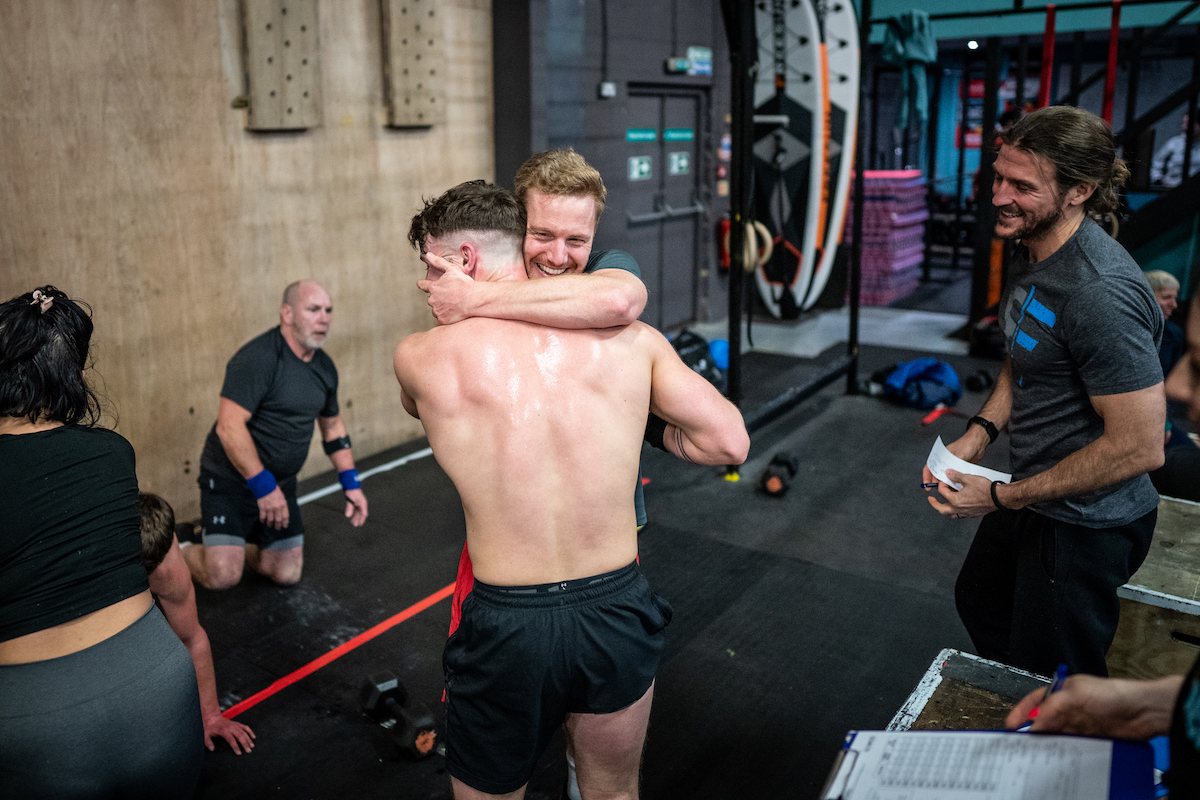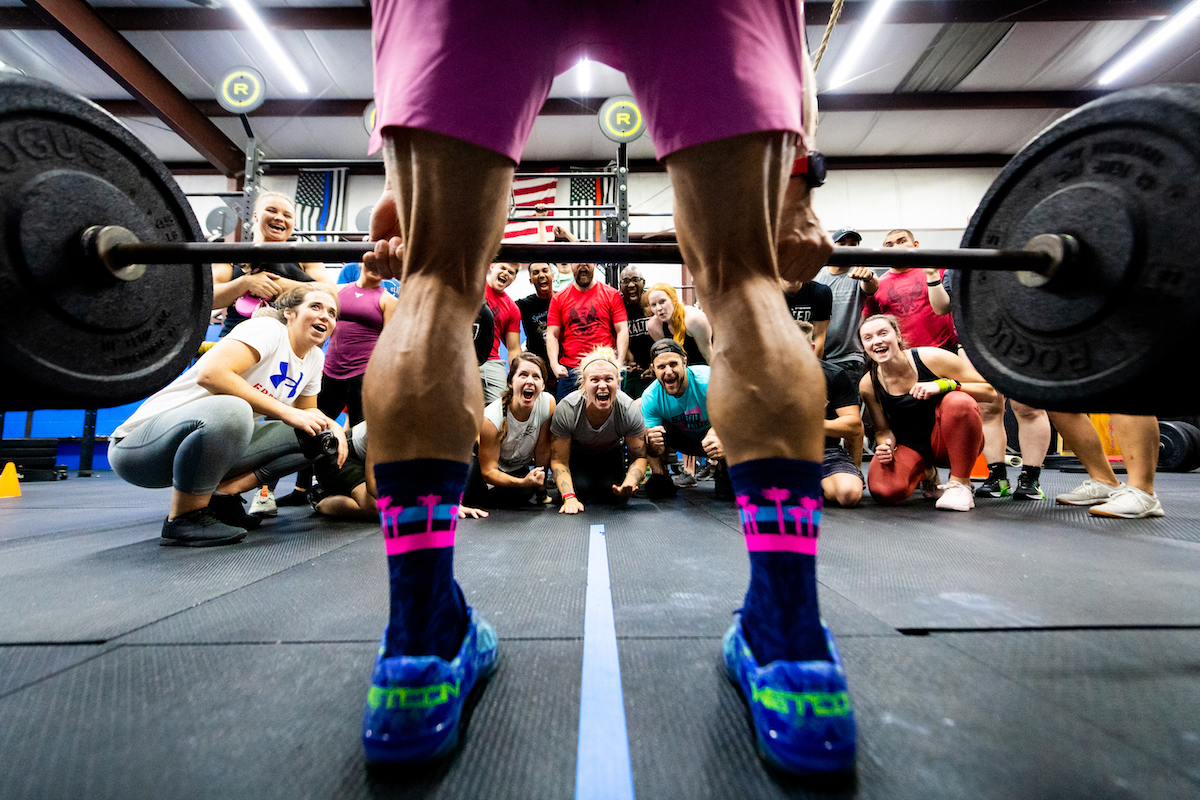“But for happiness, we’re on our own to pursue it—or not. And therein lies the rub: you have to pursue it. How? Where to turn?” writes Robert Lustig, M.D., in “The Hacking of the American Mind.”
In the book — featured on CrossFit.com in 2020 — Lustig outlines the ways in which “our pursuit of happiness is being subverted by a culture of addiction and depression from which we may never recover,” in the words of the publisher.

Speaking in the language of brain chemistry, Lustig makes clear the difference between reward (dopamine) and contentment (serotonin). Dopamine is a neurotransmitter connected to the reward systems in the brain, activated when we experience pleasurable things like food, sex, and drugs. Serotonin, on the other hand, is associated with happiness, contentment, and calm. They may seem similar, but few would argue that exercising is as pleasurable as eating chocolate cake, yet exercise is a surefire way to get a surge of serotonin.
The point is that pleasure is not happiness, yet we live in a world rigged to make us crave more and more of the things that make us feel good, often leading to addiction and chronic disease — and rarely to happiness.
These riggings — the systemic issues that have led to a chronically sick and stressed-out culture dependent on addictive foods, substances, and technology — are too vast and complicated to be undone by the systems that created them, Lustig writes. That means it’s up to the individual.
An individual can find happiness with what he calls the “Four C’s of Contentment: Connect, Contribute, Cope, and Cook.” The challenge is that none work as well independently as they do in concert, and collecting them all is a tall order.
Fortunately, there’s a one-stop shop for all four: the CrossFit affiliate.
“As a CrossFit coach, this prescription is the foundation for what we do. The sense of community and camaraderie in our boxes is as health-giving as is the exercise and nutrition prescription. Every good coach instinctively understands the power of a supportive and inclusive community. “—Karen Katzenbach
Connect
Writing on connection, Lustig points to studies in religion, psychology, and human development with a central key finding: “When you are part of something larger than yourself—whether united by religion, or a tribal origin or heritage, or a worldview, or a hobby, or a common goal—you feel a greater sense of contentment,” he writes.
Social connection is correlated with increased serotonin levels, while the inverse is also true. Lustig also tackles the critical question of whether virtual social connectedness has the same effect — by and large, it doesn’t.
Social media has been widely shown to affect the brain in the same way as other reward-driven addictions. Additionally, Lustig referenced a study that suggested the more time people spent on social media, the less subjective well-being they experienced — and that increasing direct interpersonal interaction had the opposite effect.
In an increasingly digital world where even work and recreation are virtual, where’s one place where you can still find in-person, screen-free support and connection? The CrossFit affiliate.
“That ‘something’ larger than myself, for me, is CrossFit and the people that it has brought into my life.” —Jobst Olschewski

Contribute
Writing about contribution, Lustig unpacks real-world statistics in support of the phrase “money can’t buy happiness,” arguing that “it isn’t the money that ups your serotonin. It’s what you do with the money and your time.”
He points to studies showing that increased wealth alone most often leads to increased dissatisfaction, while those who contribute to society via their time, work, or wealth found greater contentment.
“By offering your spare time to a cause bigger than yourself, without the thought of personal gain, you can derive meaningfulness and contentment and eudemonia,” Lustig writes, noting that altruistic behavior also reduces cardiovascular risk in those who partake in it.
CrossFit has long distinguished itself from other fitness programs as one driven by community, and inherent in that drive is a commitment to altruism.
At the affiliate level, that might look like fundraiser workouts in support of individual members undergoing hardship or affiliate-sponsored events benefiting local organizations. As a company, CrossFit has a longstanding history of supporting philanthropic efforts and galvanizing the community around them.
“A lot of (Lustig’s points regarding) how to be content was a ‘how to’ to running a box: Form a tight community, volunteer and do (good) deeds for the community, preach the gospel of sleep and exercise, and learn how to cook for yourself to help good eating habits.” —Brennan Morton

Cope and Cook
“One of the primary drivers of reward … and inhibitors of contentment … is stress,” Lustig writes. “Yet it’s not the specific stressor that matters, it’s the individual’s response to stress and how long it goes on that determines whether that particular stress is adaptive or maladaptive.”
I’ve combined Lustig’s final two C’s into one section here because they comprise the fundamental role of the CrossFit affiliate: exercise and nutrition (it’s worth noting that Lustig also includes sleep and meditation in his prescription for coping).
“Doctors have known for decades that exercise is the single best thing you can do for yourself, both physically and mentally,” Lustig writes. He references studies that indicate exercising is “about as good as” SSRIs (selective serotonin reuptake inhibitors) in treating depression, and combining the two is even better.
And then there’s nutrition — which is, incidentally, the foundation of CrossFit’s theoretical hierarchy of development of an athlete. Nutrition is a many-nuanced thing, but CrossFit and Lustig are in hearty agreement about at least one point: For optimal physical and mental health, avoid sugar.
CrossFit’s recommendation for nutrition is to eat meat and vegetables, nuts and seeds, some fruit, little starch, and no sugar. And as Lustig writes, “sugar isn’t just responsible for many of our physical health problems, but it also plays a significant role in our mental health … sugar fulfills the criteria of a substance of abuse, as it is toxic and addictive.”
Humanity has been chasing happiness for centuries, and we’ve gone about it in mostly all the wrong ways. As Lustig would say, we’ve been hacked.
But with some effort, we can unhack ourselves.
“There is plenty of room for pleasure in life, and lots of things can bring you pleasure,” Lustig writes. “But no thing can make you happy. Experiences can make you happy. People can make you happy. You can make you happy. There are many ways to get there.”
And you can find most of them in the CrossFit affiliate.